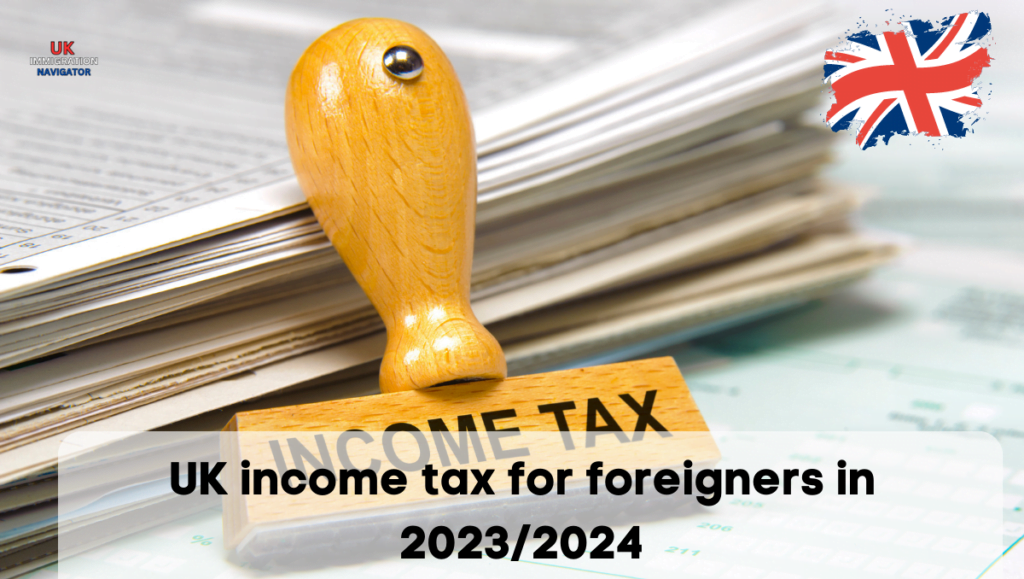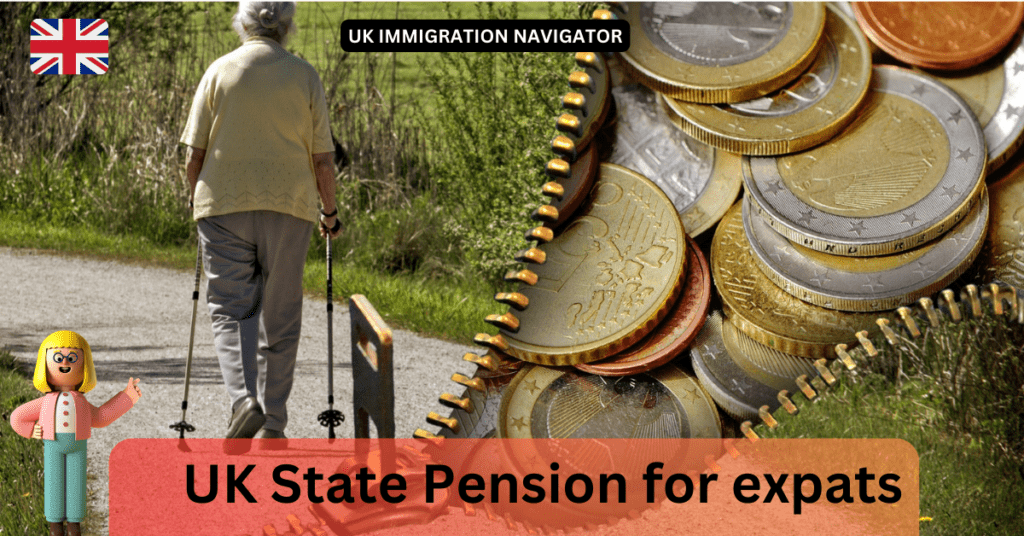Moving abroad is an exciting adventure, but it also comes with a set of responsibilities, including understanding the implications for your pension. The UK State Pension for expats is an important topic to grasp, as it can significantly impact your retirement plans. In this guide, we’ll walk you through the key aspects of the UK State Pension for expats, from eligibility criteria to application procedures, ensuring you’re well-prepared for this stage of your life. At UK IMMIGRATION NAVIGATOR , we are committed to offering you a comprehensive guide to navigate the complexities of the UK State Pension system for expats.
1. The UK State Pension for expats: Your Foundation for Retirement
At the core of expat pension planning lies the UK State Pension, a retirement savings plan provided by the UK government. This pivotal system ensures that individuals who have diligently worked throughout their lives have a financial cushion to rely on during their retirement years.
2. Unveiling the UK State Pension
While you may explore other pension options in the UK, the State Pension forms a solid bedrock for your retirement plan. Under the new State Pension structure, the full amount you can receive stands at a noteworthy £179.60 per week, translating to over £9,300 annually. This reliable source of income is typically disbursed every four weeks, directly into a bank account of your choice.
3. Eligibility Criteria for the UK State Pension for expats

Unlocking the benefits of the UK State Pension necessitates meeting certain eligibility criteria, including:
3.1 State Pension Age
You become eligible to claim the State Pension upon reaching the State Pension age. As of the 2021/22 tax year, this stands at 66. However, this age is poised to rise to 67 and subsequently 68 in the coming years. The government website provides a tool to determine your State Pension Age at the time of your retirement.
3.2 National Insurance Contributions
The number of qualifying years of National Insurance Contributions (NICs) forms another key criterion for eligibility. Under the new State Pension regulations, a minimum of 10 years of qualifying NICs in the UK throughout your working life is essential to receive the minimum State Pension amount. To obtain the full pension, a minimum of 35 qualifying years of NICs is required.
Most UK citizens, categorized as Pay As You Earn (PAYE) workers, have their NICs deducted directly from their monthly pay, akin to the process of Income Tax. For those not under PAYE, such as the self-employed, NICs must be paid independently. Voluntary NICs are also an option for those seeking to enhance their contribution history. Your NIC record can be accessed on the government website.
4. Expats and the UK State Pension for expats
Expats, too, can generally anticipate receiving their UK State Pension while residing abroad or during their retirement overseas. However, it is essential to contact the International Pension Centre UK as you approach retirement age. A crucial point to remember is that regulations vary based on your country of residence.
4.1 Living in Europe

In the past, bilateral agreements allowed years of work and contributions to social security in EU member states, European Economic Area (EEA) countries, and Switzerland to count towards your UK State Pension eligibility. Nonetheless, post-Brexit, these regulations have shifted.
While expats residing in the EU, EEA, or Switzerland can still receive their UK State Pension if they meet eligibility criteria, the State Pension of your new country of residence cannot be claimed. Working with experts at [Your Company Name] can guide you through these nuanced changes.
4.2 Living Outside Europe
Expats outside Europe are now governed by rules similar to those within Europe. Eligibility hinges on the fulfillment of NICs in the UK over your working life. Your State Pension can be paid into a UK bank account or, if preferred, into an overseas account using your international bank account number (IBAN) and bank identification code (BIC).
5. Noteworthy Considerations: Exchange Rates and Beyond
Living abroad and receiving the State Pension means navigating the realm of exchange rates. Your pension will be paid in the local currency of your country of residence, potentially leading to fluctuating income levels.
5.1 Other Key State Pension Rules
One critical rule to remember is that you can only claim the State Pension in a single country within a year. If you relocate during that year, you cannot receive payments from both countries. Regulations also vary between countries, making it imperative to understand your country of residence’s specific rules.
6. Exploring UK Private Pensions
Beyond the State Pension, private UK pensions come into focus, offering additional avenues for securing your retirement.
6.1 Tax Relief

Private pensions come with tax efficiency benefits. When you contribute to your private pension, the Income Tax you would have paid is added to your pension pot at your marginal Income Tax rate. This tax relief enhances your contributions, offering an attractive approach to building a retirement fund.
6.2 Investment Returns
Private UK pensions are invested across bonds and equities by fund managers, creating opportunities for investment returns. This can potentially bolster your pension fund over time, amplifying your retirement resources.
6.3 Pension Freedoms
Pension Freedoms, introduced in 2015, grant UK residents greater flexibility in utilizing their retirement funds. These rules permit a 25% tax-free lump sum withdrawal from age 55 (increasing to 57 in 2028). This lump sum could prove invaluable for international relocations or pursuing new ventures.
7. UK Workplace Pensions: A Mandatory Avenue
In addition to private pensions, UK residents are likely to have contributed to a workplace pension, mandated by law for eligible employees.
7.1 Workplace Pension Contributions
Most workplace pensions are defined contribution (DC) plans, with your end payout determined by your contributions. The minimum total contribution to your workplace pension is 8% of your earnings, comprising 3% from your employer and 5% from a blend of your salary and tax relief.
8. The Global Reach of UK Workplace Pensions
Drawing on your workplace pension holdings while residing abroad is permissible under UK law. However, similar to the State Pension, exchange rates may impact your income, and potential fees could apply for accessing funds overseas.
9. Utilizing Offshore Pension Plans
For those eyeing international living, offshore pension plans present an alternative to UK pensions. However, these plans come with their unique considerations.
9.1 Qualifying Recognised Overseas Pension Scheme (QROPS)
Offshore pension schemes must adhere to HMRC’s criteria, making them Qualifying Recognised Overseas Pension Schemes (QROPS). Choosing a QROPS necessitates thorough research and verifying its status.
9.2 Downsides to Offshore Pension Plans
Transferring to QROPS might entail tax liabilities, contingent on the host country. Additionally, investment portfolios may be concentrated in offshore assets, introducing unfamiliar risks. Thoughtful evaluation is vital, as these choices can impact your retirement lifestyle.
10. Tax Rules and the Global Expatriate
When drawing UK pension income abroad as a non-UK resident, you may still be subject to UK Income Tax due to the classification of your income. Double taxation might occur, necessitating understanding of your host country’s double-taxation agreements with the UK.
11. Crafting Your Retirement Vision
While pensions are crucial, shaping your retirement revolves around personal aspirations. If the dream of living abroad beckons, your pension can be your ally. On the other hand, if worldly explorations or newfound passions take precedence, reevaluating pension strategies is prudent.
12. Collaborating with Financial Advisors
For expats navigating retirement planning, enlisting the guidance of a qualified financial advisor like us can be invaluable. We bring comprehensive financial planning services to the table, tailored to your unique circumstances. With our expertise in expat pension planning, we ensure your retirement goals are realized effectively.
Remember, your investment’s value can fluctuate, and past performance is not indicative of future outcomes. Taxation rules are subject to change based on individual circumstances. Workplace pensions adhere to The Pension Regulator’s regulations. This article is for informational purposes and does not constitute financial advice.
All information provided is based on our understanding of HMRC legislation, subject to alterations.




Pingback: Check Your UK State Pension Forecast In The UK In 2024 - UK Immigration Navigator